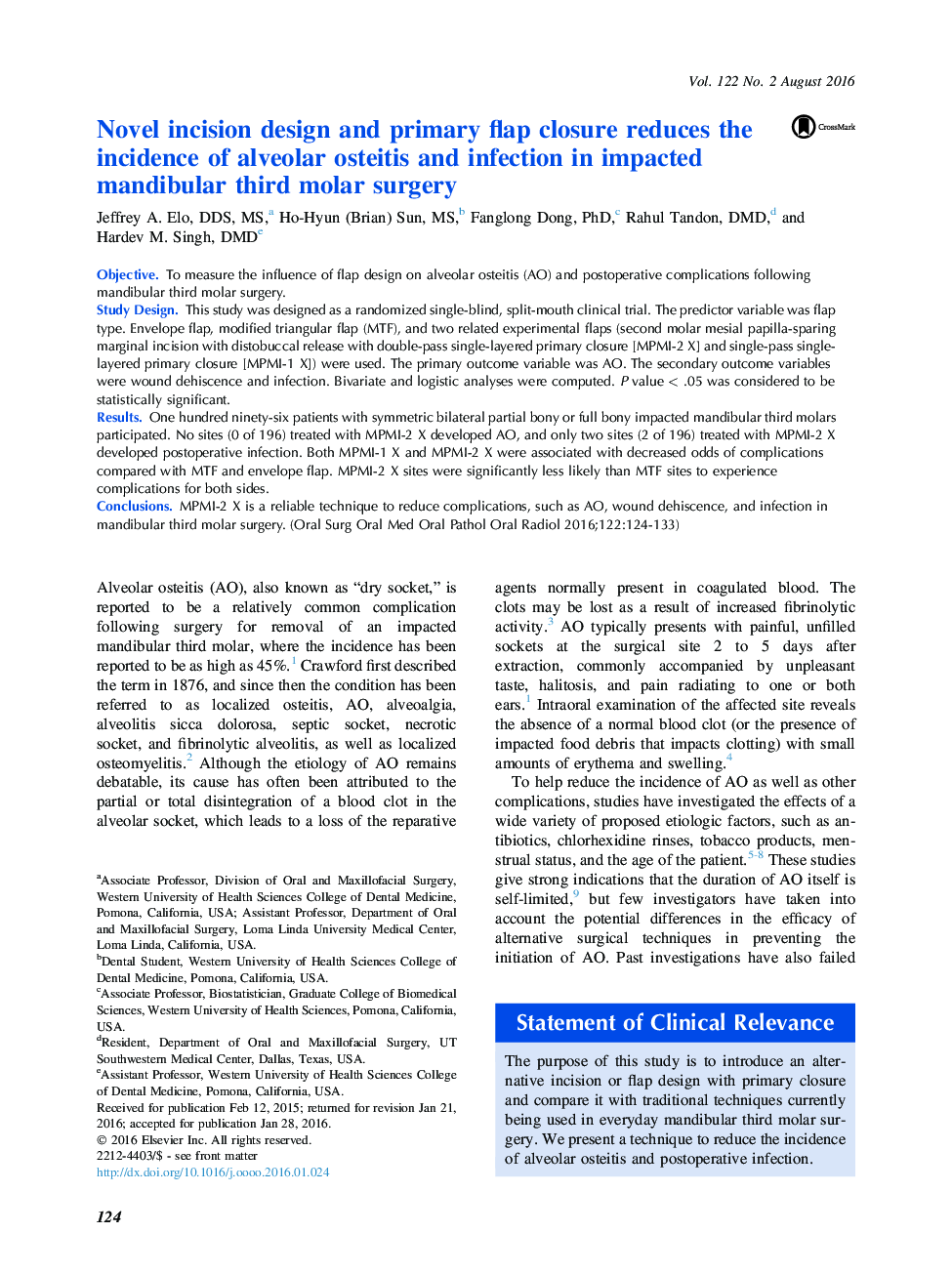| کد مقاله | کد نشریه | سال انتشار | مقاله انگلیسی | نسخه تمام متن |
|---|---|---|---|---|
| 3166359 | 1199112 | 2016 | 10 صفحه PDF | دانلود رایگان |
ObjectiveTo measure the influence of flap design on alveolar osteitis (AO) and postoperative complications following mandibular third molar surgery.Study DesignThis study was designed as a randomized single-blind, split-mouth clinical trial. The predictor variable was flap type. Envelope flap, modified triangular flap (MTF), and two related experimental flaps (second molar mesial papilla-sparing marginal incision with distobuccal release with double-pass single-layered primary closure [MPMI-2 X] and single-pass single-layered primary closure [MPMI-1 X]) were used. The primary outcome variable was AO. The secondary outcome variables were wound dehiscence and infection. Bivariate and logistic analyses were computed. P value < .05 was considered to be statistically significant.ResultsOne hundred ninety-six patients with symmetric bilateral partial bony or full bony impacted mandibular third molars participated. No sites (0 of 196) treated with MPMI-2 X developed AO, and only two sites (2 of 196) treated with MPMI-2 X developed postoperative infection. Both MPMI-1 X and MPMI-2 X were associated with decreased odds of complications compared with MTF and envelope flap. MPMI-2 X sites were significantly less likely than MTF sites to experience complications for both sides.ConclusionsMPMI-2 X is a reliable technique to reduce complications, such as AO, wound dehiscence, and infection in mandibular third molar surgery.
Journal: Oral Surgery, Oral Medicine, Oral Pathology and Oral Radiology - Volume 122, Issue 2, August 2016, Pages 124–133
